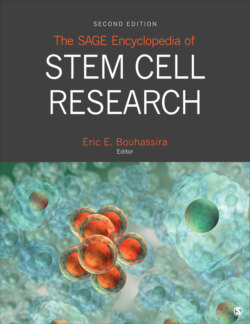Читать книгу The SAGE Encyclopedia of Stem Cell Research - Группа авторов - Страница 370
На сайте Литреса книга снята с продажи.
Human Integrity
ОглавлениеThe commercialization of SCT and its products leads to additional human integrity concerns. Human integrity refers to the protection of human rights and dignity, especially those of vulnerable populations who might participate in a clinical trial. Anyone familiar with Henrietta Lacks understands the debate surrounding use of human cells and informed consent. Unlike in Japan and most of the European Union (EU), U.S. patent laws do not contain a morality clause and are based exclusively in whether the item meets the uniqueness and usefulness criteria.
Property and intellectual rights laws regarding the disposition of human tissues in the United States are vague and based mostly on court precedents. U.S. courts commonly deny the assignment of tissue property rights to either donors or those possessing the tissues based on a cell’s failure to meet the criteria to be defined as property. However, both EU property law and U.S. intellectual property law recognize that procedures performed on tissues may confer “value” that, in and of itself, meets the property definition. Thus, modification of adult cells into iASC confers a value that can be regulated by property law.
Conversely, laws commonly limit a person’s right to sell their own organs or tissues in order to prevent human exploitation. This fact recognizes the need to prevent abuse of vulnerable populations and is significant to the discussion. The U.S. and the EU recognize an individual’s right to informed consent regarding the disposition of removed tissues, including cells taken for modification into iASC. The question remains as to whether a vulnerable population, who may see the trial as their “last hope,” can make a truly informed decision about the disposition and future use of their cells. It may also be unrealistic to think people are able to negotiate their rights when in such a position.
Perhaps more importantly, this vulnerability also brings into question a patient’s ability to assess quality of life concerns resulting from clinical trials. Regardless of outcome, participants in SCT consistently report lower scores on quality of life evaluations during participation. This is not unexpected and for trials involving non-life-threatening illness may be moot. However, when dealing with life-threatening illness and so called last chance therapies, the ability of patients to make quality of life and end of life care determinations may be compromised.
Coming to terms with a terminal illness is a slow and emotionally challenging process, and caregiver emphasis is placed on balancing treatment against valuing what is left of one’s time while health allows. Treatments such as chemotherapy and SCT reduce the quality of this remaining time in favor of cures or extended life spans, although an extending life span may be of little value if that time is lived with a significantly reduced quality of life. Because it is not uncommon that palliative care must be suspended during trials, patients may be risking undue suffering to participate. These are standing questions in any terminal illness investigation but possibly more pertinent to SCT due to the aforementioned overoptimistic perspective for hope.
